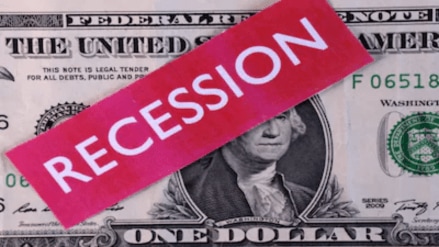Recession concerns have intensified across US financial markets, with JPMorgan Chase & Co. warning that the Russell 2000 index, which tracks smaller American companies, is now pricing in a 79% chance of an economic downturn. The stark projection signals heightened fear among equity investors, particularly in segments closely tied to the domestic economy.
JPMorgan’s recession dashboard, which assesses risk across asset classes, shows recession probabilities rising sharply in recent weeks. The S&P 500 now reflects a 62% chance of a downturn, while base metals and five-year Treasuries are pricing in 68% and 54% odds, respectively. In contrast, the investment-grade credit market remains more optimistic, with recession risk estimated at just 25%, though up from zero in November.
“The Russell 2000, which as a more cyclical index should contain more information about the cyclical position of the US economy, prices in an average recession with high probability of almost 80%,” said JPMorgan strategist Nikolaos Panigirtzoglou. “A mild recession is almost 100% priced in.”
Market sentiment took a further hit after the White House reaffirmed plans to impose 104% tariffs on Chinese goods, reigniting trade tensions. Equities gave up strong gains on Tuesday, with the S&P 500 dropping nearly 3%, edging closer to bear market territory.
While equities and commodities reflect mounting economic pessimism, credit markets appear less rattled. “Corporate fundamentals are so strong that they make credit investors doubtful of a credit cycle emerging even in a weak GDP growth scenario,” Panigirtzoglou noted, adding that historically, credit markets have been reliable recession predictors.
Still, JPMorgan economists have revised their forecasts downward. Led by Bruce Kasman, the team now sees a 60% chance of a global recession. Michael Feroli, the bank’s chief U.S. economist, cut his GDP projection from 1.3% to -0.3% for the year.
Adding to the gloom, a Bloomberg survey conducted April 2–3 revealed that 92% of economists believe the sweeping tariffs increase the risk of a U.S. recession in the coming year.
While markets may have priced in significant pessimism, JPMorgan suggests that any positive surprises in economic data or policy shifts could spark a relief rally—offering a sliver of hope amid rising recession fears.
